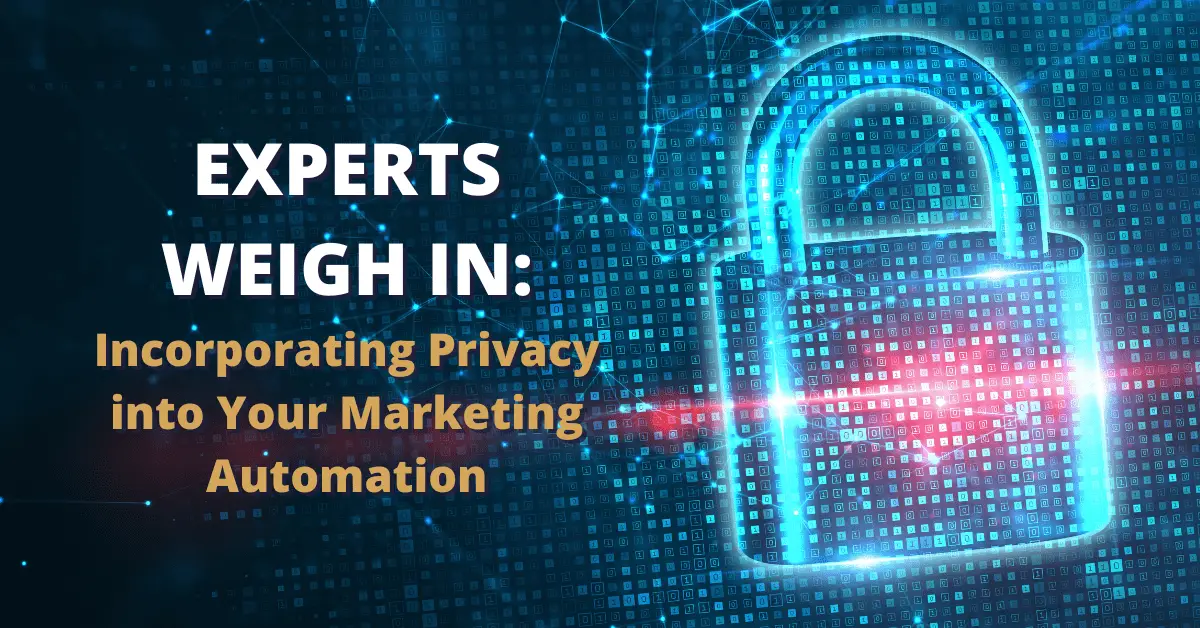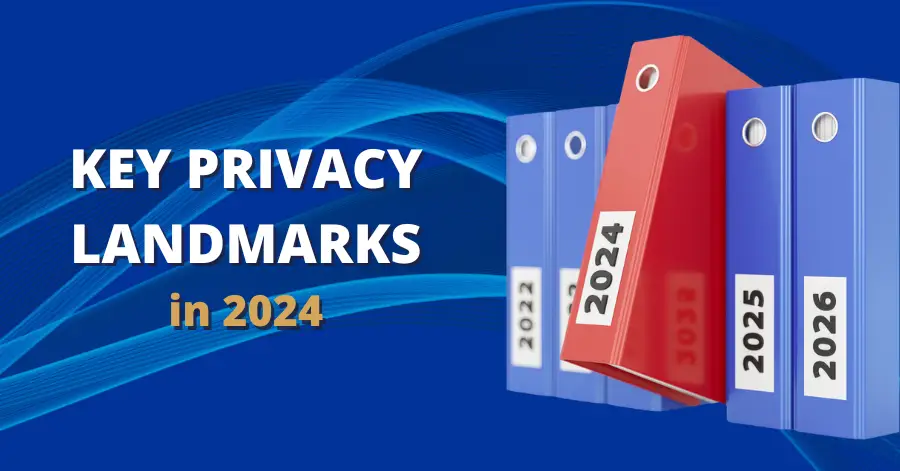Experts Weigh In: Incorporating Privacy into Your Marketing Automation


Data privacy and legal compliance are vital in any marketing campaign. But when your campaigns use marketing automation systems, how can you implement privacy best practices from the very beginning? Here’s what seven marketing professionals have to say.
1. Make Compliance a Standard Procedure

Jason Vaught, Director of Content, SmashBrand
Compliance must be an S.O.P. (Standard Operating Procedure) that exists before any new marketing initiative. By making it a standard practice, you greatly reduce the chance of making a mistake that gets you kicked off advertising platforms or violates policies from governing agencies.
2. Implement Rigorous Consent Management

Danielle Roberts, Co Founder, Boomer Benefits
My best practice for ensuring data privacy in marketing automation involves rigorous consent management and data minimization. I ensure that we only collect data that is absolutely necessary and always with explicit consent. This means having clear, user-friendly consent forms and maintaining accurate records of consent. Additionally, I regularly review our data inventory to delete or anonymize data that is no longer needed. This approach not only helps in complying with privacy laws but also respects our customers’ privacy preferences.
3. Understand & Comply with Regulations

Nick Sforza, Founder and Digital Marketer, Opvital
To ensure data privacy and legal compliance in marketing automation, it’s crucial to be well-versed in relevant regulations like the GDPR and CCPA. Always obtain clear consent from users for data collection and usage, and maintain transparency. Implement strong data-security measures to safeguard against unauthorized access. Regular audits of your system for compliance are essential, as is updating it in line with new legal requirements. Finally, educating your team about the importance of data privacy and compliance is key to ensuring responsible data handling throughout your organization.
4. Ensure Software Providers’ Compliance

Derek Capo, COO, Starquix.com
Ensure that software providers are compliant. This task would normally be left to the company lawyer, but marketing professionals should take a step further to check that their vendor is compliant, as they are a processor of customer data. Anyone can also enlist the help of an in-house data-protection officer or a privacy consultant.
5. Conduct Privacy Impact Assessments

Shoaib Mughal, CEO, Marketix
Before implementing significant changes or launching new marketing campaigns, we conduct Privacy Impact Assessments (PIAs). These assessments help us identify potential privacy risks and take proactive measures to mitigate them. PIAs are a crucial part of our compliance strategy, ensuring data privacy is considered in all our activities.
6. Adopt a Comprehensive Compliance Approach

Ankit Prakash, Founder, Sprout24
Our approach is multifaceted and deeply rooted in our commitment to ethical practices. Firstly, we prioritize transparency with our users, clearly communicating how their data will be used. This builds trust and aligns with legal frameworks.
Our strategy includes regular audits and updates of our systems to comply with evolving privacy laws. We employ robust data encryption and secure access protocols to protect sensitive information. Additionally, we provide continuous training to our team on privacy laws and ethical data handling, ensuring that every decision we make is informed and compliant.
We also engage with legal experts to stay ahead of legislative changes, adapting our marketing strategies to be not only effective but also respectful of user privacy. By balancing innovative marketing techniques with stringent data-protection measures, we not only adhere to legal requirements but also foster a culture of trust and respect with our clients.
7. Adhere to Data Minimization Policies

Gregory Rozdeba, CEO, Dundas Life
We strictly adhere to the principles of data minimization and implement clear data retention policies. We only collect and retain the data necessary for marketing purposes, and we define specific timelines for data deletion when it is no longer needed. This not only reduces the risk of data breaches but also ensures compliance with regulations like the GDPR and CCPA.
Is your marketing automation system optimized for privacy? Contact our team of privacy experts today for help bringing your operations into full compliance.





